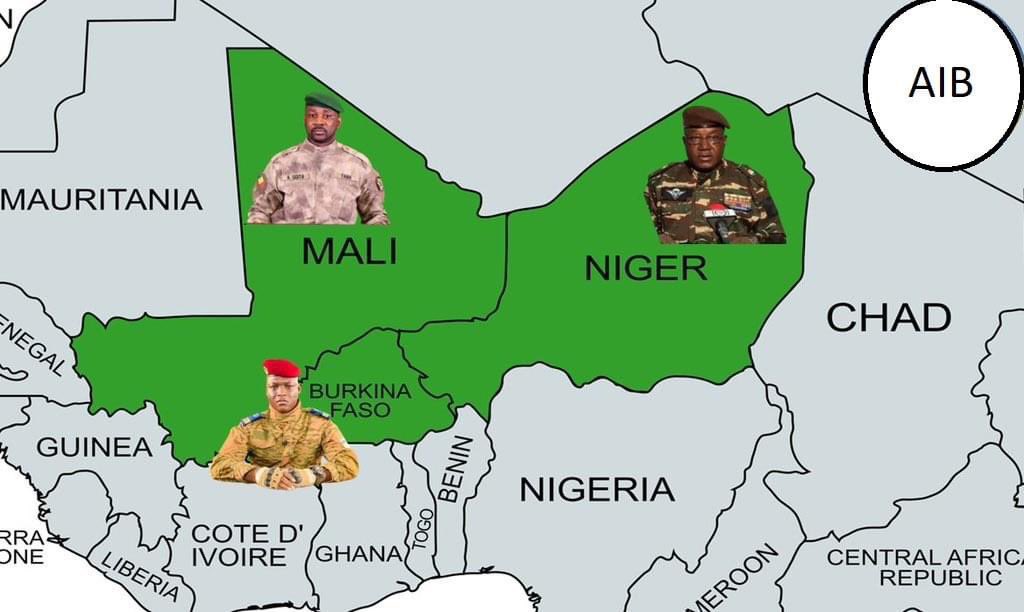
Foreign
Sahel States Unite: Burkina Faso, Mali, Niger Form Confederation

(iexclusivenews) – In a bold move that has sent shockwaves through West African geopolitics, the military leaders of Burkina Faso, Mali, and Niger have signed a treaty to form a new confederation.
This unprecedented alliance, known as the Confederation of Sahel States (AES), marks a significant shift in regional dynamics and raises important questions about the future of West African cooperation.

The Birth of a New Alliance
On July 6, 2024, the leaders of these three coup-hit nations convened in Niamey, Niger’s capital, to formalize their union.
The summit resulted in the adoption of a treaty establishing the AES, which will encompass a population of approximately 72 million people.
This move comes on the heels of their collective decision to withdraw from the Economic Community of West African States (ECOWAS) earlier this year.

Breaking Ties with ECOWAS and France

Sahel States Unite: Burkina Faso, Mali, Niger Form Confederation
-A Shift in Regional Allegiances:
The formation of the AES represents a significant realignment of political and economic ties in West Africa.
The leaders of Burkina Faso, Mali, and Niger have accused ECOWAS of being manipulated by France, their former colonial ruler.
General Abdourahamane Tiani, the head of Niger’s military government, emphatically stated during the summit, “Our people have irrevocably turned their back on ECOWAS.”
READ MORE: Masoud Pezeshkian Iranian Reformist Wins Presidential Election
Sahel States Break Away from ECOWAS and Form New Confederation
Seeking New Partnerships
In a move that has raised eyebrows in international circles, these three nations have severed their military and defense links with France.
Instead, they are actively pursuing greater cooperation with Russia, signaling a potential shift in the balance of power in the region.
Implications of the New Confederation
-Economic Integration:
The AES aims to foster closer economic ties among its member states.
This could lead to increased trade, shared resources, and potentially a common currency in the future.
Such integration could bolster the economic resilience of these nations, which have faced significant challenges in recent years.
Security Cooperation
Given the volatile security situation in the Sahel region, the AES is likely to prioritize joint efforts to combat terrorism and cross-border crime.
This could involve sharing intelligence, coordinating military operations, and developing a unified strategy to address regional security threats.
Diplomatic Challenges
The formation of the AES poses diplomatic challenges for the international community.
Western nations, particularly France and other EU countries, will need to reassess their approach to the region.
Meanwhile, Russia’s growing influence in these countries could lead to increased tensions with Western powers.
The Road Ahead
While the establishment of the AES marks a significant moment in West African history, many questions remain about its future.
How will this new confederation navigate the complex web of regional and international relations?
Can it effectively address the economic and security challenges facing its member states?
As the world watches this new alliance take shape, it’s clear that the geopolitical landscape of West Africa is undergoing a profound transformation.
The success or failure of the AES could have far-reaching consequences for regional stability, economic development, and the balance of power in Africa and beyond.




























